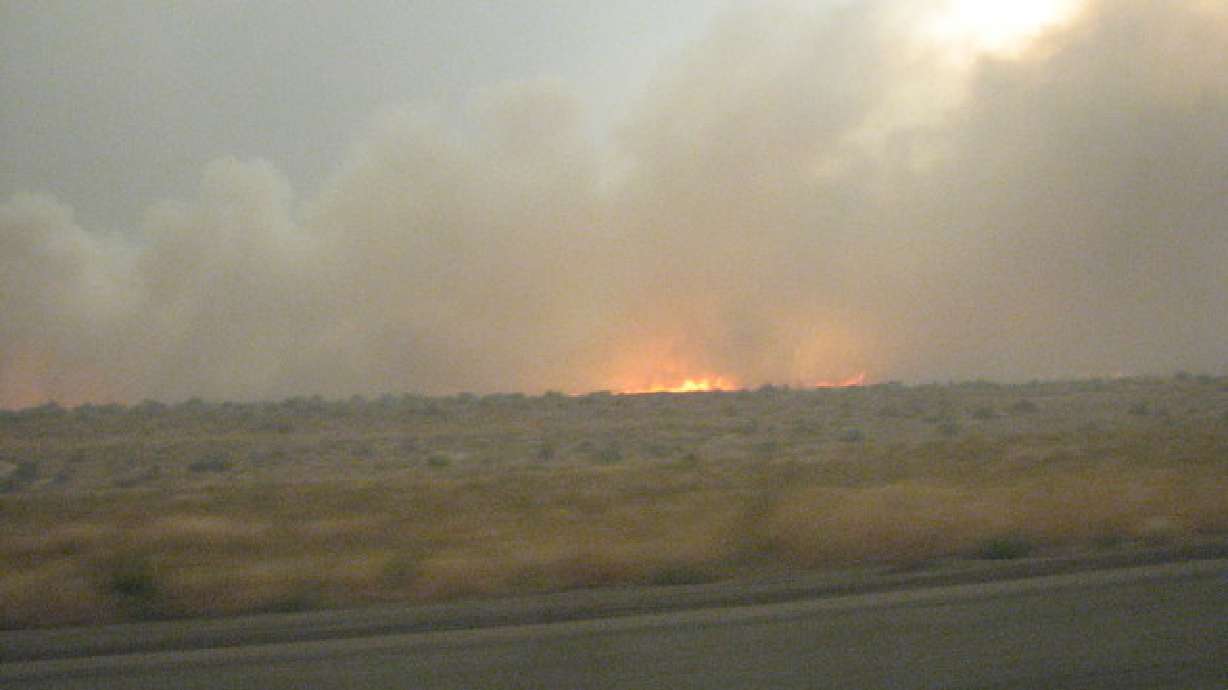Estimated read time: 1-2 minutes
This archived news story is available only for your personal, non-commercial use. Information in the story may be outdated or superseded by additional information. Reading or replaying the story in its archived form does not constitute a republication of the story.
SALT LAKE CITY (AP) -- Federal land managers will reseed wildfire-ravaged areas with native and non-native grasses, ignoring one plant species that can protect others from flames, a shrub called forage kochia.
The decision by the Bureau of Land Management ignores the advice of its researchers who say kochia is one of the few plants that can compete against cheatgrass, an invasive plant that chokes out native species and fuels wildfires.
Native to arid regions of central Eurasia, kochia (pronounced KO-chuh) also provides food for livestock and wildlife.
"The BLM is ignoring years of research," said Jerry Chatterton, who retired as director of the U.S. Department of Agriculture's Research Service lab in January. "It's a big reason why I retired."
Bill Hopkin, director of the state's Grazing Improvement Program said, "This is bad policy. It needs to be changed."
The BLM will use 11 different plant mixtures, mostly grasses and some flowering range plants, said Jack Brown, reseeding coordinator for the BLM's Utah office.
Federal land managers may use kochia only for long-term restoration.
Kochia stopped flames in the Milford Flat fire, the state's largest recorded blaze that charred more than 546 square miles in Beaver and Millard counties in July.
A plot of kochia was seeded after 1986 wildfires in the same area. When scientists returned to the plot in July, they discovered the kochia not only survived but protected native species from the intense flames.
Forage kochia grows as fast as the approved grasses, said Mike Pellant, coordinator of the BLM's Great Basin Restoration Initiative in Idaho. "But there's a segment of the community that believes because forage kochia is not a native plant, right away there's a black mark against it," he said.
------
Information from: The Salt Lake Tribune
(Copyright 2007 by The Associated Press. All Rights Reserved.)









